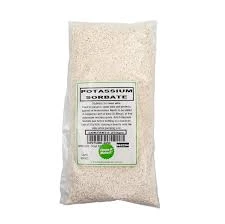
Commonly Utilized Food Additives for Preservation and Quality Maintenance
Commonly Used Food Preservatives Understanding Their Role in Food Safety
In today's fast-paced world, food preservation is more crucial than ever. With the increasing global population and the demand for longer shelf-life products, preservatives play a significant role in ensuring that food remains safe and palatable for consumption. This article will delve into some commonly used food preservatives, their functions, benefits, and concerns regarding their use.
What are Food Preservatives?
Food preservatives are natural or artificial substances added to food products to prevent spoilage, maintain freshness, and extend shelf life. They accomplish this by inhibiting the growth of bacteria, molds, and yeasts, as well as by slowing down the oxidation process that causes rancidity and discoloration. There are various types of preservatives, including antibacterial agents, antimicrobials, antioxidants, and acidulants.
Commonly Used Food Preservatives
1. Sodium Benzoate This is one of the most widely used preservatives, particularly in acidic food products like soda, fruit juices, and pickles. Sodium benzoate is effective at preventing yeast and mold growth. However, its efficiency diminishes in a high pH environment, which is why it is primarily used in acidic foods.
2. Potassium Sorbate Often found in dairy products, baked goods, and wines, potassium sorbate prevents the growth of molds and yeasts. It is considered safe for consumption, and many food manufacturers prefer it due to its minimal flavor impact and effectiveness.
3. Calcium Propionate Commonly used in bread and baked goods, calcium propionate helps inhibit the growth of mold and bacteria. Its effectiveness stems from its ability to lower moisture content in food, which is critical for preventing microbiological growth.
4. Sodium Nitrite and Sodium Nitrate These are primarily used in cured meats such as bacon, ham, and sausages. They not only preserve the product but also enhance color and flavor while preventing bacterial growth, particularly botulism. However, there are concerns regarding the formation of nitrosamines, carcinogenic compounds that can occur when these preservatives are subjected to high temperatures.
commonly used food preservatives

5. BHA and BHT Butylated hydroxyanisole (BHA) and butylated hydroxytoluene (BHT) are synthetic antioxidants commonly used in snacks, cereals, and packaged foods to prevent rancidity. While they effectively extend shelf life, their safety has been questioned, with some studies indicating possible links to cancer in animal studies.
6. Citric Acid A natural preservative derived from citrus fruits, citric acid is often added to food to enhance flavor and improve preservation. It is effective in acidifying foods, which inhibits the growth of microorganisms. You can find it in jams, jellies, and canned products.
Benefits of Food Preservatives
The use of food preservatives brings several benefits to both manufacturers and consumers. They allow for longer storage periods, reduce food waste, and enable the transportation of food over long distances. This is particularly essential in a globalized world where fresh food may not always be readily available. Additionally, preservatives can help maintain the nutritional value and overall appeal of food products.
Concerns and Controversies
Despite their benefits, the use of food preservatives also raises concerns. Some consumers express worries about potential health risks associated with artificial preservatives, prompting a growing trend towards natural food preservation methods. Moreover, regulatory bodies such as the FDA closely monitor the use of preservatives to ensure they are safe at the concentrations used in food products.
The debate surrounding the impact of preservatives on health continues, with calls for clearer labeling and consumer awareness. Some individuals may experience sensitivities to certain preservatives, leading to reactions such as headaches or allergic responses.
Conclusion
Food preservatives play a critical role in today's food industry, ensuring safety and longevity in a diverse range of products. While there are valid concerns about some preservatives, their benefits in preventing spoilage and promoting food safety cannot be overlooked. As consumers grow more discerning about their food choices, it is essential to strike a balance between understanding the role of preservatives and making informed decisions related to diet and health. By promoting transparency and education, we can better navigate the complexities of food preservation in an ever-evolving culinary landscape.
-
Water Treatment Chemicals for Industrial ProcessesNewsAug.07,2025
-
Unlocking the Secrets of Ammonium Bicarbonate in Traditional BakingNewsAug.07,2025
-
Monosodium Glutamate Seasoning for Stock EnhancementNewsAug.07,2025
-
Enhancing Dimethyl Disulfide Solubility with Green SolventsNewsAug.07,2025
-
Aspartame Safety: Current Research and RegulationsNewsAug.07,2025
-
Aluminum Hydroxide Antacid and Nutrient Absorption ImpactNewsAug.07,2025
-
1,2,3-Benzotriazole: The Unsung Hero of Industrial Chemical InnovationNewsAug.07,2025
Hebei Tenger Chemical Technology Co., Ltd. focuses on the chemical industry and is committed to the export service of chemical raw materials.
-

view more DiethanolisopropanolamineIn the ever-growing field of chemical solutions, diethanolisopropanolamine (DEIPA) stands out as a versatile and important compound. Due to its unique chemical structure and properties, DEIPA is of interest to various industries including construction, personal care, and agriculture. -

view more TriisopropanolamineTriisopropanolamine (TIPA) alkanol amine substance, is a kind of alcohol amine compound with amino and alcohol hydroxyl, and because of its molecules contains both amino and hydroxyl. -

view more Tetramethyl Thiuram DisulfideTetramethyl thiuram disulfide, also known as TMTD, is a white to light-yellow powder with a distinct sulfur-like odor. It is soluble in organic solvents such as benzene, acetone, and ethyl acetate, making it highly versatile for use in different formulations. TMTD is known for its excellent vulcanization acceleration properties, which makes it a key ingredient in the production of rubber products. Additionally, it acts as an effective fungicide and bactericide, making it valuable in agricultural applications. Its high purity and stability ensure consistent performance, making it a preferred choice for manufacturers across various industries.











